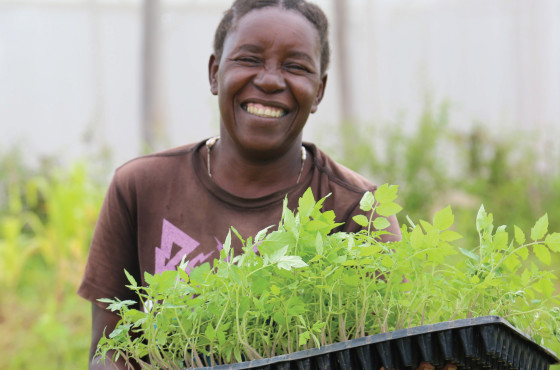Three Reasons to be Hopeful in 2021

Dóchas has invited a number of experts and advisors in policy, inequality, human rights and humanitarian action to share their wisdom on the key issues and trends civil society should be aware of over the coming months. There is much to be concerned about and a lot to be done, but there are important nuggets of hope to be found in each piece.
13 Jan 2021
"If 2020 was the year of sounding the alarm of the impacts of the pandemic, I believe 2021 will be the year of delivery."
by David McNair, Executive Director, Global Policy, The ONE Campaign
As we begin 2021, the world is not looking in good shape. The World Bank predicts an additional 150 million people could be pushed into poverty due to the aftershocks of the COVID crisis. In Europe new strains of the virus are seeing record number of infections in the US, UK, and South Africa, hunger is worsening in South Sudan and Yemen. The prospect of a peaceful transition of power is not looking likely in the United States while opposition parties in Uganda, Tanzania and Zambia face real oppression. If you haven’t read Nick Kristof’s NY Times piece on this, you should stop reading this now and click HERE.
But if 2020 was the year of sounding the alarm of the impacts of the pandemic, I believe 2021 will be the year of delivery. Here are three reasons to be hopeful.
First, the remarkable speed and success of vaccine candidates means that during this year we could see an end to lockdowns in many advanced economies. This would protect the global economy and potentially open up the travel and tourism sectors taking some of the pressure off African economies. But the current roll-out is one of vaccine nationalism. This is both wrong and myopic. The development of new strains is a terrifying reminder that none of us our safe until all of us are safe. At ONE we’ll be working hard to raise money for COVAX, support the African Union in its procurement efforts for vaccines on the continent, and support South Africa and India in their proposal for an Agreement on Trade-Related Aspects of Intellectual Property Rights (TRIPS) waiver at the World Trade Organisation. You can check out the Vaccine Access Test which ranks companies and countries on their progress on equity and join the campaign HERE.
Second, the management of the pandemic in Africa has been nothing short of impressive. From pan-African procurement of PPE and securing vaccine financing, to advocacy coordination to the G20 and G7 on debt and financing. Sadly, the Saudi G20 and Trump G7 have not responded with anywhere near what is needed. I am hopeful that the Biden Administration, the UK chairing the G7 and Italy Chairing the G20, this will change. First order of business should be the allocation of 500bn Special Drawing Rights to be transferred to the poorest countries. This move, which was previously blocked by the Trump administration, could provide the necessary liquidity to weather the economic aftershocks of COVID.
Finally, the pandemic has been a wake-up call to our collective vulnerability to global shocks. That my safety and security is dependent on yours is now abundantly clear. And of course humanity faces another urgent threat: Climate Change. For the first time the US, EU and China see this issue as a top priority. Meanwhile the cost of renewable energy keeps falling and global markets are shaping an environment conducive to a low carbon economy. We might just avert a climate catastrophe.
The stakes are high. If we don’t get these things right, we could be looking at a lost decade for development, more political, economic and environmental instability and so much wasted potential.
But the political headwinds are changing and that’s a reason to be optimistic.
The views expressed in this article are that of the author alone and do not necessarily represent the views of Dóchas or its members.